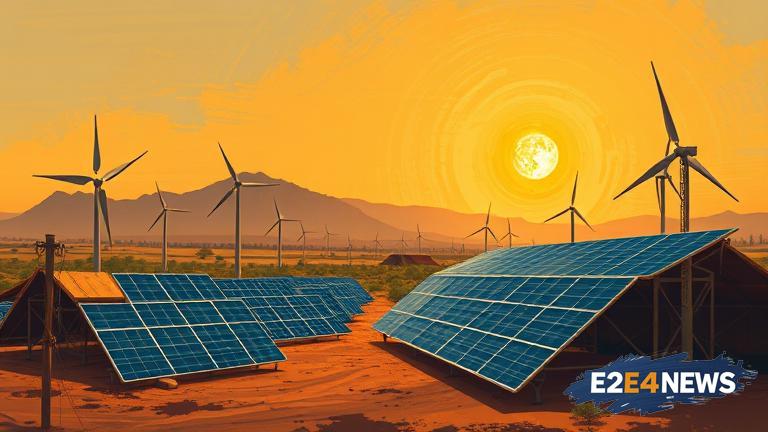The African continent is witnessing a significant shift towards renewable energy, driven by the need to address the pressing issues of energy access, climate change, and sustainable development. With many countries still struggling to provide reliable and affordable electricity to their citizens, renewable energy has emerged as a viable solution. Solar and wind power are leading the charge, with countries like South Africa, Egypt, and Morocco investing heavily in these sectors. The African Union’s ambitious goal of achieving 100% access to electricity by 2030 has further accelerated the adoption of renewable energy. Governments are implementing policies and regulations to support the growth of the renewable energy industry, including tax incentives, feed-in tariffs, and net metering laws. Private sector investment is also pouring in, with companies like Vestas, Siemens Gamesa, and Enel Green Power establishing a presence on the continent. The cost of renewable energy technologies has decreased dramatically over the years, making them more competitive with fossil fuels. Additionally, the integration of renewable energy into the grid is becoming more efficient, thanks to advancements in technology and infrastructure. Energy storage systems, smart grids, and microgrids are being deployed to address the intermittency of renewable energy sources. The benefits of renewable energy are numerous, including reduced greenhouse gas emissions, improved air quality, and enhanced energy security. Moreover, the renewable energy sector is creating new job opportunities and stimulating local economies. However, challenges persist, including the lack of infrastructure, limited access to financing, and policy inconsistencies. To overcome these hurdles, international cooperation and knowledge sharing are essential. The European Union, the United States, and China are providing significant support to African countries to develop their renewable energy sectors. The African Development Bank, the International Renewable Energy Agency, and the United Nations are also playing a crucial role in promoting renewable energy on the continent. As the demand for energy continues to grow, African countries must prioritize renewable energy to ensure a sustainable and prosperous future. The transition to a low-carbon economy will require a concerted effort from governments, private sector companies, and civil society organizations. With the right policies and investments in place, Africa can become a leader in the global renewable energy market, driving economic growth, reducing poverty, and protecting the environment. The time for action is now, and the continent must seize the opportunity to create a brighter, more sustainable future for all. Renewable energy is not just a necessity, but a catalyst for transformation and development. As the world moves towards a more sustainable and equitable future, Africa’s renewable energy revolution will play a vital role in shaping the global energy landscape. The continent’s vast natural resources, combined with its growing population and urbanization, make it an ideal location for renewable energy investments. With the correct framework and support, Africa can unlock its full potential and become a beacon of hope for a sustainable future.





